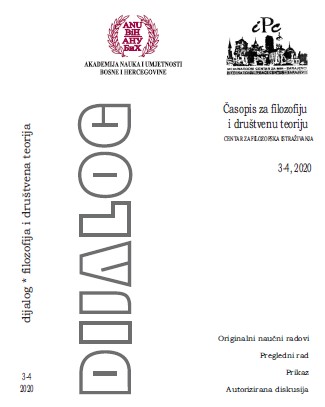Geopolitika i mir: Prekid vatre kao mirovni sporazum
Geopolitics and peace: a cease-fire as a peace agreement
Author(s): Nerzuk ĆurakSubject(s): Constitutional Law, Political history, Government/Political systems, Studies in violence and power, Transformation Period (1990 - 2010), Inter-Ethnic Relations, Geopolitics, Peace and Conflict Studies
Published by: Akademija Nauka i Umjetnosti Bosne i Hercegovine
Keywords: geopolitics; geostrategic players; geopolitical power; ceasefire; peace agreement; negative peace; positive peace; peace form;
Summary/Abstract: The Dayton Peace Agreement formed Bosnia and Herzegovina as a unique political community. Its characteristics, determined by the conditions of its creation, negotiation strategies used in the US Army base where it was created, as well as its content, acceptable to all “parties in conflict”, created more of a ceasefire than a peace agreement. Two and a half decades of continuous existence of the political and judiciary reality created by the “Dayton papers’’ witness the geopolitical strength of the global US power backing Holbrooke’s ambivalent document. Contradictory in its essence, both integrative and disintegrative, the Agreement is an expression of non-war rather than peace (existence of war through its absence), and a halt of violence more than a contract for creation of permanent peace. Even as such, life gave this Agreement a specific kind of meaning, one which citizens of Bosnia and Herzegovina live as if it was peace. Unfortunately, there has been no progress of peace in this life. For 25 years, the Dayton state has been delivering itself to its citizens as a permanent structure of negative peace. The Constitution drafted as a part of Agreement limits the construction and development of political community keeping it in the confinement of negative peace, in which possibilities for transformation of the state and the community towards positive peace are scarce or impossible. Basing his arguments in geopolitical theory and theory of peace, the author aims to oppose geopolitics and peace as two relatively divergent terms whose discursive rivalry contributes to understanding of the paradox of Bosnia and Herzegovina, characterized by the geopolitical fabrication dynamic and a still form of peace.
Journal: Dijalog - Časopis za filozofiju i društvenu teoriju
- Issue Year: 2020
- Issue No: 03+04
- Page Range: 162-174
- Page Count: 13
- Language: Bosnian

